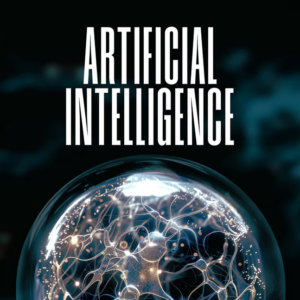On Tuesday November 12th, the Benning Society, a well-established University organization dedicated to recruiting and retaining top researchers and clinicians for the University of Utah’s (the U) Spencer Fox Eccles School of Medicine, hosted a panel discussion with and featured invited presentation by Dr. Eric Topol, MD, assessing the use of Artificial Intelligence in medicine.
 Topol is renowned for his work in molecular medicine at Scripps Research Translational Institute where he is an Executive Vice President. It is the largest non-profit biomedical research organization in the United States. He is the director and founder of Scripps Research Translational Institute and professor of molecular medicine there. Furthermore, he is founder of the Lerner College of Medicine at Cleveland Clinic where he is an active cardiologist. Topol was elected to the National Academy of Medicine, and is one of the top 10 most cited researchers in medicine with over 1,300 peer-reviewed articles published and over 300,000 citations. He has published three bestselling books dedicated to the future of medicine: The Creative Destruction of Medicine, The Patient Will See You Now, and Deep Medicine: How Artificial Intelligence Can Make Healthcare Human Again. At Sub Stack, he publishes a weekly newsletter and podcast on cutting-edge biomedical advances entitled, Ground Truths.
Topol is renowned for his work in molecular medicine at Scripps Research Translational Institute where he is an Executive Vice President. It is the largest non-profit biomedical research organization in the United States. He is the director and founder of Scripps Research Translational Institute and professor of molecular medicine there. Furthermore, he is founder of the Lerner College of Medicine at Cleveland Clinic where he is an active cardiologist. Topol was elected to the National Academy of Medicine, and is one of the top 10 most cited researchers in medicine with over 1,300 peer-reviewed articles published and over 300,000 citations. He has published three bestselling books dedicated to the future of medicine: The Creative Destruction of Medicine, The Patient Will See You Now, and Deep Medicine: How Artificial Intelligence Can Make Healthcare Human Again. At Sub Stack, he publishes a weekly newsletter and podcast on cutting-edge biomedical advances entitled, Ground Truths.
Topol is devoted to furthering the future of healthcare by utilizing genomic, digital, and AI tools in his research. He continues to progress towards this goal with the assistance of two large National Institutes of Health (NIH) grants as PI: The All of Us Research Program which supports precision medicine, and a Clinical and Translational Science Award (CTSA), that promotes clinical innovation.
The roundtable discussion panel was first held at the Ken Garff University Club on campus, and included panelists from the University of Utah: BME’s Dr. Rob MacLeod (PhD), Dr. Orly Atler (PhD), and Dr. Karli Gillette (PhD), as well as Dr. Roger Alan Altizer (PhD), Dr. Andrew Arai (MD, MSCMR), Dr. Satoshi Minoshima (MD, PhD), Dr. Manish Parashar (PhD), Dr. Martin Tristani-Firouzi (MD), and Dr. Mark Yandell (PhD) before Dr. Topol’s invited Benning presentation.
Topol’s lecture discussed advancements made in AI such as transformer models introduced by Chat GPT in late 2022, and how they are used to expand the capabilities of medicine and healthcare. Such current AI-assisted healthcare capabilities include: improving the accuracy of diagnoses, predicting patient comprehensive health status/risks from eye exams and EKG traces, patient-centered communication, promotion of empathy, and synthesis of multi-modal data (including electronic health records, genomics, sensors, and environmental data).
Given concerns of advancing AI in healthcare, including possibly worsening inequities, gaps in privacy and security, propagating biases, and lack of transparency, research conducted by Topol and others in this area is pivotal to understanding AI’s ability to improve medicine delivery for human health and continue to shed light on the evolving complexities that AI brings. Both the Roundtable discussion and panel, and invited lecture were insightful for both faculty and students here at the U, and offered valuable insights into possibilities that AI may bring to the medical field.
(some information provided by the U Benning Society)
